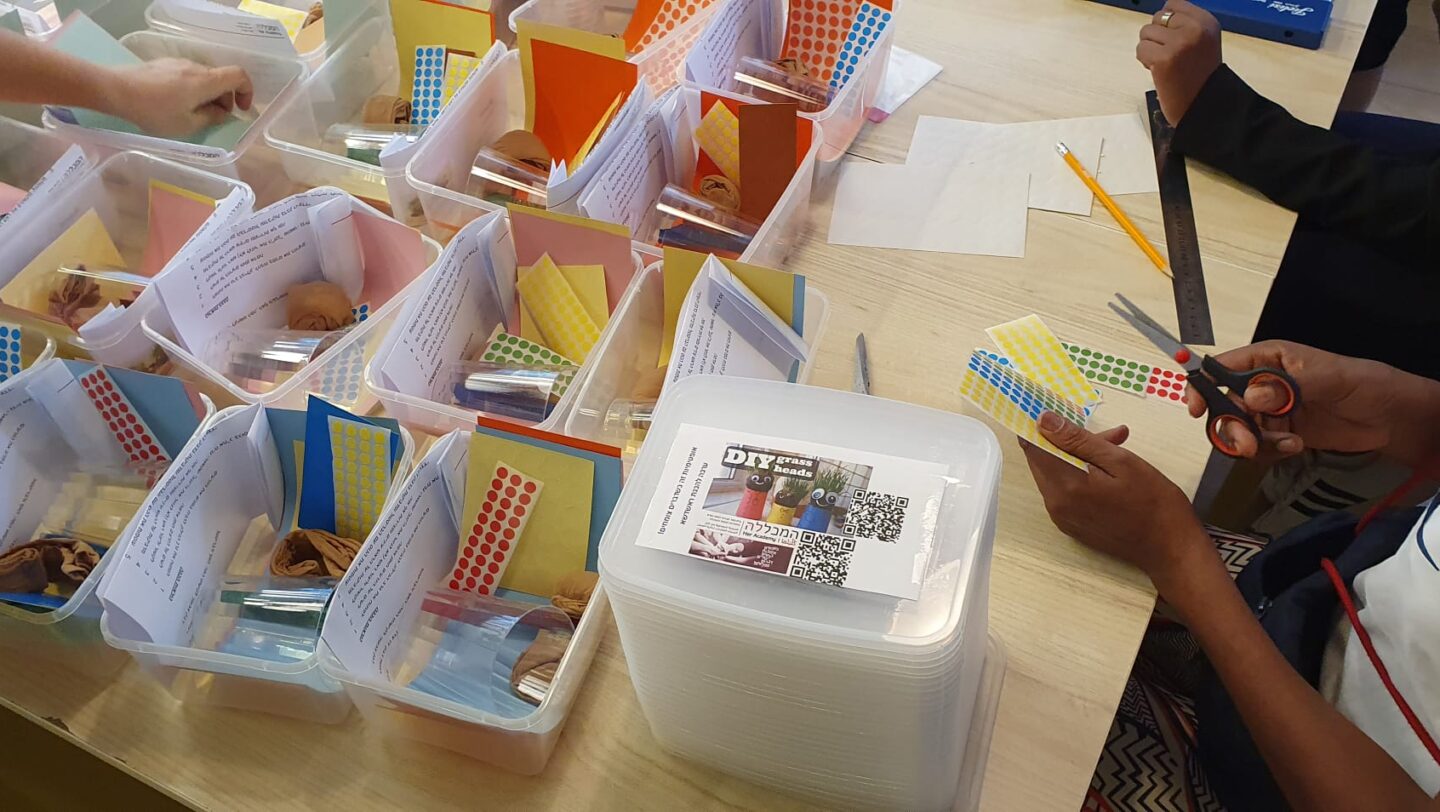Photo: UNHCR
The early days of March send cautious rays of warm optimism to a bustling Tel-Aviv street, people running around during their lunch break, desperately forcing a façade of normalcy, in a place that has been anything but normal.
In this “war-routine”, every holiday or special day is cautiously marked, accompanied with a heavy shadow, a space reserved for those who cannot celebrate.
March 8, “International Women’s Day”, is no different. Perhaps its role and meaning are even greater this year.
But within the walls of Her Academy there is a sense of calm and the comforting aroma of a home-cooked meal. The white walls adorned with activist-feminist art, lively-green plants and a rich library are much more than décor, they are tools and power, and they create a new reality for the 130 students at the vocational school for women coming out of prostitution and abuse.
“Sitting in one classroom around the table, are women wearing a hijab, next to Ultra-Orthodox women, trans women, and asylum-seekers,” says Iris Stern-Levi, co-founder and co-CEO of Her Academy, “they all study with each other without judgment, or hostility to either side, even during these days. They look at each other and know they’re all in the same boat.”
Stern-Levi is more than familiar with the power of sisterhood as well as the sensitive and painful issues it involves. After decades of activity in the feminist-activist arena and as the head of the volunteer center at the Sexual Assault Crisis Center in Tel Aviv, she founded Her Academy a decade ago, together with Tal Hamoui, Co-CEO. Soon, they plan to open a second branch of Her Academy, in Haifa.
“Her Academy gave me strength, I learned many things here but most of all, Her Academy is now like my family, without it, I wouldn’t even be able to breathe.”
After many years of close cooperation, UNHCR Israel is proud, this year, to have Her Academy join as a partner organizations, and help support 13 of its students, African asylum-seekers, who are taking their first steps in acquiring language and a profession. After learning the language, each student continues to advanced courses according to her interests; from English and computers, to studies in confectionery, flower weaving, yoga teacher training and writing a resume. The curriculum is tailored particularly for these women, most of whom suffer from complex PTSD.
Unlike most students, all asylum-seekers who study here are also mothers. To enable their participation, Her Academy, in cooperation with UNHCR, take care of their needs, which are childcare costs, children’s clothes and food. Stern-Levi says that since October 7, women have lost their jobs and needed rent assistance as well, similarly to the situation during the COVID-19 pandemic.
Samar*, an asylum-seeker and former student shares: “Her Academy gave me strength, I learned many things here but most of all, Her Academy is now like my family, without it, I wouldn’t even be able to breathe.”
“We discovered that it takes about five years to feel safe enough, to feel ‘equal among equals’,” says Stern-Levi, proudly sharing the story of one of the graduates who now works as a teaching assistant in a municipal kindergarten. “She learned to read and write, then computer applications and early childhood education, which is a very demanding course, including CPR and first aid, how to talk to parents, child development and more. She was hired, despite her lack of experience and has been there for over a year… She does very well there and continues to advance.”
“Women don’t need discounted make-up, they need equal opportunities, fair wages, security on the street and at home.”
For Samar and the other women who went through the training, the college was a significant turning point. The courses are only a small part of what students receive. Stern-Levi talks about the additional social value of Her Academy. They have a tradition of celebrating holidays together, and encourage women to also take part in political-social activities, such as voting in the recent municipal elections or participating in demonstrations. “We joined a women’s demonstration in Kaplan, a relatively small demonstration, only of women for women, and they all came out, with signs. These women don’t join the mass demonstrations in Kaplan [demonstrations against the “Judicial Reform” D.R.) but they wanted so deeply to feel a sense of belonging, they live in this society but next to us.”

Students, volunteers and staff creating “Chia Pet” kits for the children of evacuees from the south. “The students are part of society, they want to take part in assisting and contributing just like the rest of us.” Photo: Her Academy
So, naturally, International Women’s Day is also an opportunity for learning and empowerment. “In recent years, March 8th has become a day for cosmetics companies offering discounts to women and buying us flowers and chocolate,” says Stern-Levi. But it is a day meant to mark the struggle of women, not a day of indulgence. Women don’t need discounted make-up, they need equal opportunities, fair wages, security on the street and at home.”
To mark this day of struggle, Her Academy launched, together with the clothing company Story: a project called HerStory, a joint of the names which also creates an alternative to History and gives women a voice and expression in the public sphere. Phrases by revolutionary women in Hebrew, English, Russian, Amharic, Tigrinya and Arabic, the language of the student community, are printed on T-shirts and on the steps of TLV Fashion Mall, as a tribute to feminist, activist, and groundbreaking women.
In their activities, on this day and throughout the year, Her Academy staff seeks to empower the students, who according to them make revolutions every day by building their lives on their own and against all odds, because “every step they manage to take – to get to class, to finish a course – is a revolution in itself.”
*Name changed for protection concerns.
Share on Facebook Share on Twitter